 |
 |
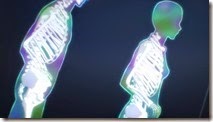 |
It’s a kernel of Seinfeld wisdom I’ve quoted before – “This is going to be a shame”.
I’ve previously noted that Kiseijuu has increasingly taken on the air of a tragedy, where the question isn’t whether heartbreaking events would crown the series, but rather how they would come about. As we enter the final run of episodes that feeling has never been stronger, despite the fact that Shinichi himself has unquestionably found an inner peace as a result of the denouement with Ryouko that he didn’t have earlier. Perhaps what’s changed is the sort of tragedy we’re expecting to occur.
The dynamic between humans and parasites has been building slowly, like a leak filling a room with explosive gas, just waiting for someone to strike a match. Well, that someone (or perhaps he’s the metaphorical match himself) is Yamagishi (Madhouse and Enzo favorite Koyama Rikiya). All we needed was a hotheaded and trigger-happy human to make the situation really dire, and Yamagishi fits the bill. He’s been put in charge of the anti-parasite operation, he’s dismissive of Hirama, and clearly believes the only solution is extreme and deadly force, dished out with excess. And it seems there’s no one in a position to matter who disagrees with him. Perhaps the ugly scar on his forehead bespeaks a prior encounter that’s fostered a grudge, or perhaps he’s simply full of bloodlust – either way, this guy is big trouble.
Iwaaki-sensei has been laying the groundwork for this moral obfuscation since the beginning, but it really kicks in hard with the events of the last few episodes. Ryouko – a woman who by her own admission killed 38 humans she didn’t need to kill (at least not all of them) – has “healed the hole in Shinichi’s heart”. She’s sacrificed herself for her human baby and trusted another human to care for him (as to that, Hirama says the baby will go into foster care if it’s deemed “normal”. I don’t think this is over yet). She’s even sold out her own species by giving Shinichi valuable information to fight back. And now we have the leader of the human counter-insurgency speaking in clearly genocidal terms, and a human mass murderer who has “final boss” written all over him – especially after he mysteriously covers for Shinichi by telling Hirama he was only imagining the boy was unusual. This story was always going to get this grey, but it’s progressed with remarkable speed of late.
We know Goutou – the five-parasite sporting, underpants Chopin-playing renaissance killing machine – is one key to the parasites’ organization. And we know Hirokawa, the mayor, is another – but because Hirama and his squad didn’t show up 30 seconds later than they did we don’t know why. Yamagishi’s plan is apparently to hit the parasites where they live – or a least work. It’s a military strike at City Hall disguised as a police operation, with the goal of identifying the parasites as they’re escorted out of the building – with Uragami and Shinichi’s help. But my sense is certainly that Yamagishi isn’t remotely concerned about any collateral damage that may occur.
It should be easy to root for the human side here, but it’s not. If there’s mystery in what Ryouko never got to say last week, there’s mystery is what she did say too. We don’t know exactly what she meant when she made her remarks about the familial relationship between the two species, but she seemed to be speaking as if she were stating facts, not hunches or opinions. And we have strong evidence (I would re-watch the first episode if you haven’t already) that the parasites somehow came into existence as either a response to or a result of the evil that exists in humans. And in Uragami we have a perfect representation of that evil.
This, then, is the crux of where the story is now. Shinichi seemed more frightened of Uragami than he was even of parasites, and I don’t think there can be any question that as awful as some of what we’ve seen the parasites do is, Uragami is worse. He doesn’t even have the thin veneer of hunger or survival to hide behind – he’s simply a sadistic bastard who gets a thrill out of the terror and despair of his fellow humans. Perhaps another reason Shinichi was so frightened, though, is that he once again has something to lose. He’s back in touch with himself and his humanity (that Murano senses this is more than obvious), and his attachment to life is stronger than it’s been at any time since the death of his mother.
In many ways, Parasyte is the story I hoped Tokyo Ghoul was going to become and hasn’t – that of a decent young man caught in he middle of a tragic conflict between two species that co-exist inside him. Can Shinichi somehow navigate something less than tragic out of this growing conflagration? It’s a terrifically tense and difficult situation, not least because Migi too is trapped in a bind. Does he help (he already is, in fact) Shinichi help Hirama (and Yamagishi) destroy the rest of his kind? Where does Migi and Shinichi’s relationship stand, both in moral and practical terms, if Yamagishi is successful? Whatever happens from here out is not going to be pretty, and it’s not going to come easily – of that I think we can be pretty certain.
 |
 |
 |
 |
 |
 |
 |
 |
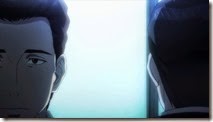 |
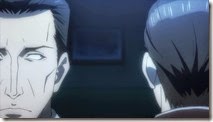 |
 |
 |
 |
 |
 |
 |
 |
 |
 |
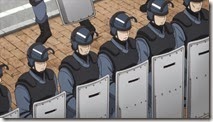 |
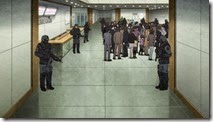 |
 |
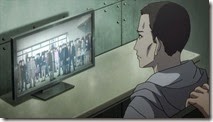 |
 |
 |
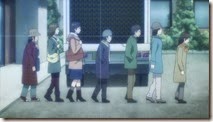 |
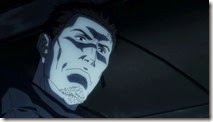 |



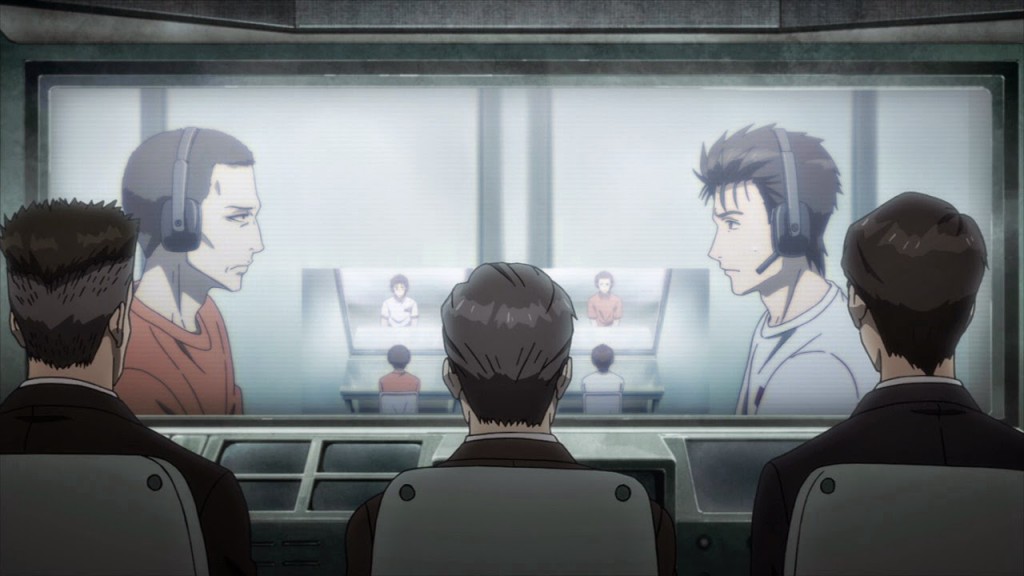
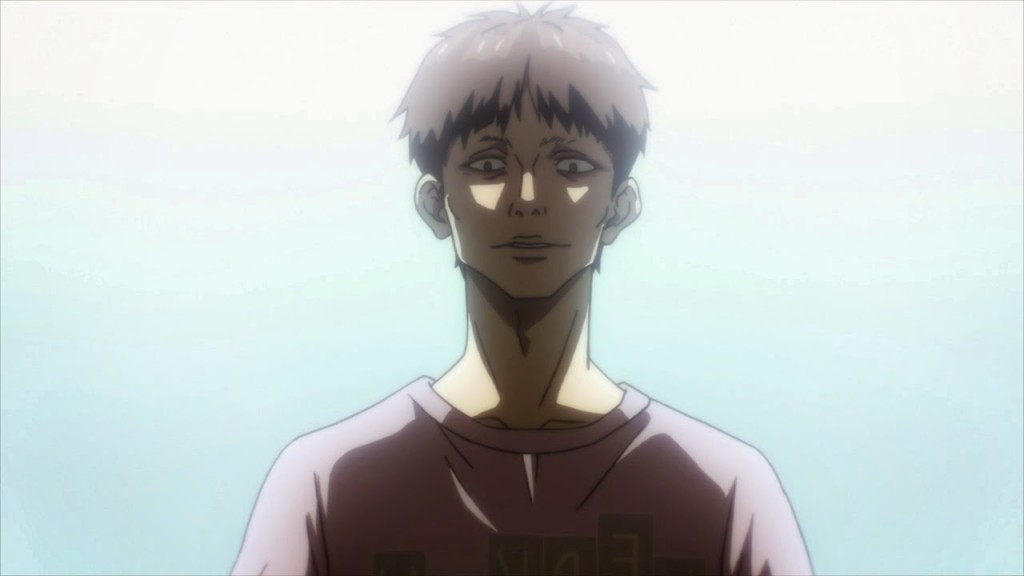
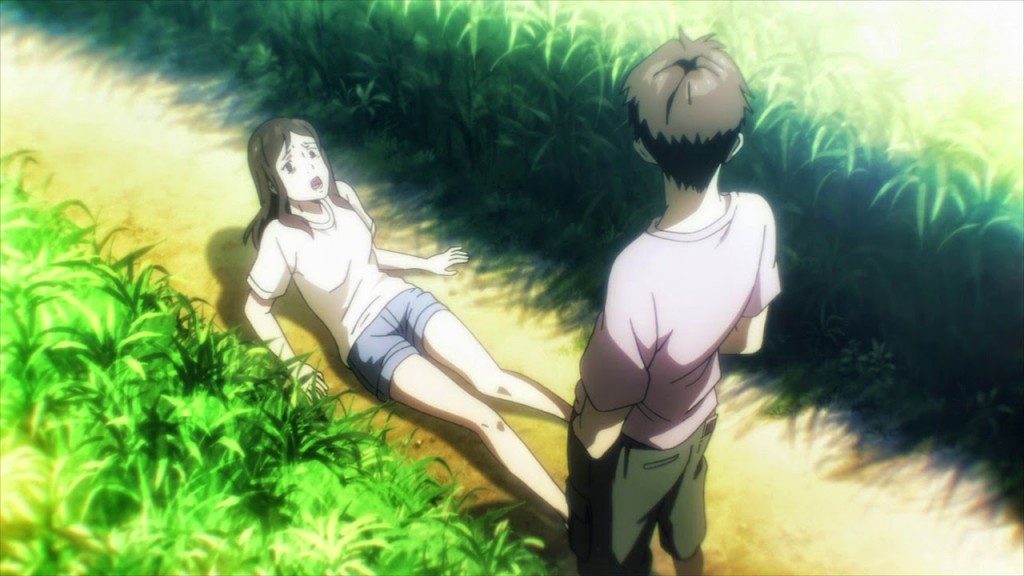
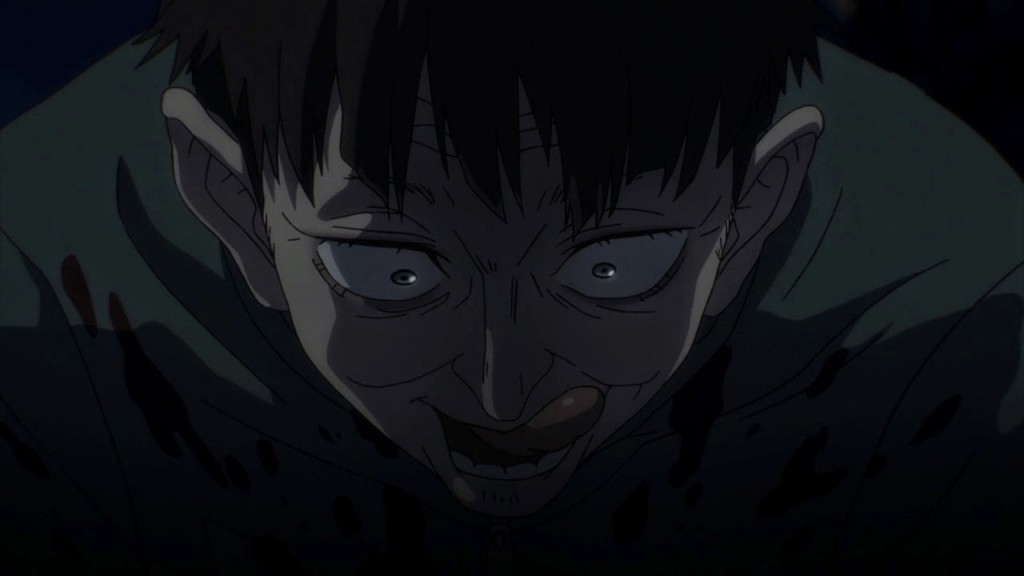
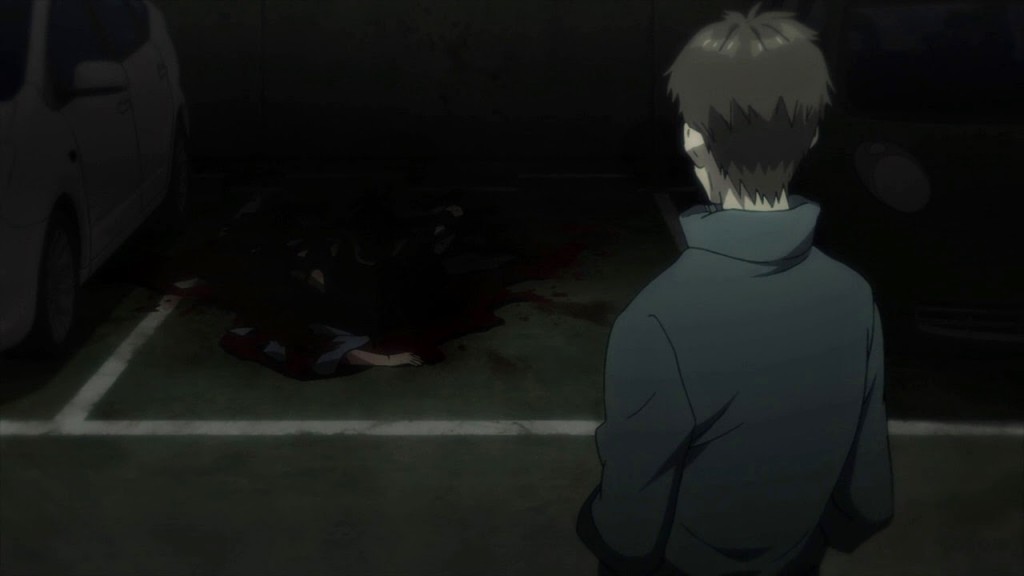

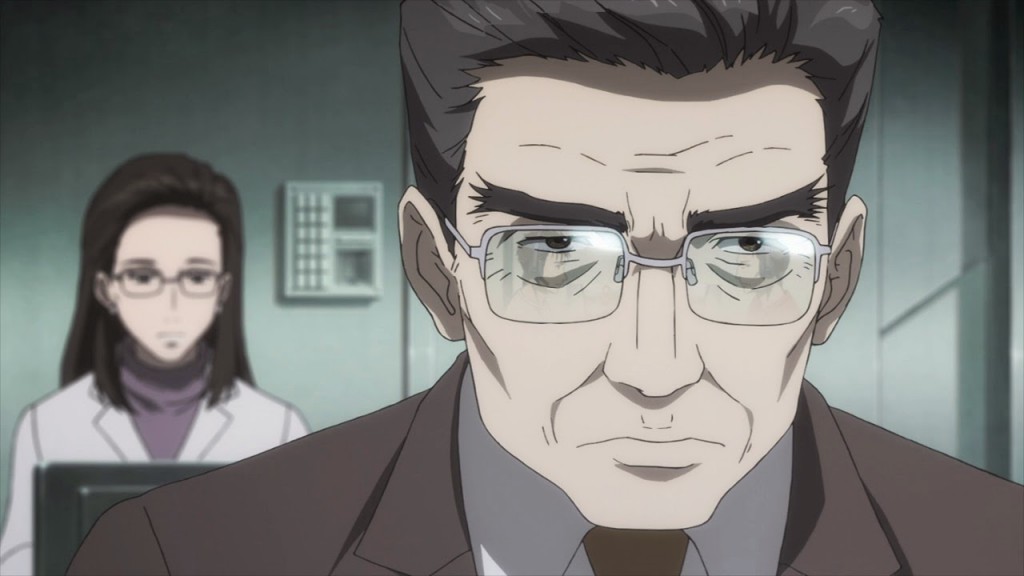
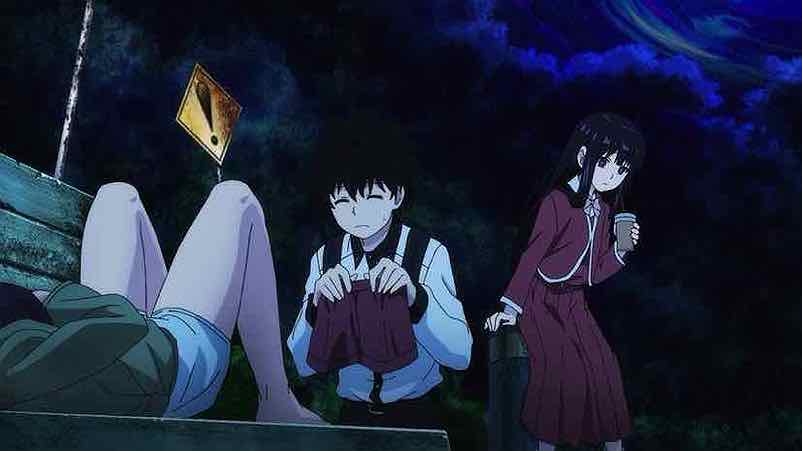
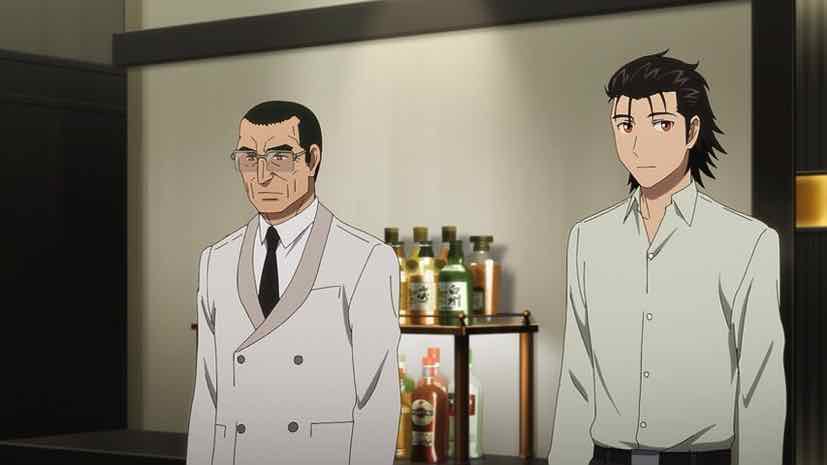
Nic
February 19, 2015 at 11:56 amInterestingly enough, Yamagishi is somewhat narrow minded, he's a surprisingly likeable character who comes across as confident instead of arrogant and loathesome.
gilraen_tinuviel
February 19, 2015 at 1:08 pmMaybe you think so. I don't like the guy at all.
I think so about Hirama, that he has such flaws and took some actions (especially he nags Shinichi constantly), he could be seen as unappealing but I'm tolerant if it's him.
Jay Psi
February 19, 2015 at 5:15 pmSo the immediate questions now are how do Gotou & Hirokawa avoid being detected if they do so, and will Uragami use any potential confusion to give his handlers the slip?
This definitely isn't going to end well.
Roger
February 19, 2015 at 6:40 pmThis review made me think a lot about the story, and it really feels like a tragedy is about to happen.
I don't see Yamagishi as a villain, he is more like a brave soldier of conviction who has gone through several battlefields and is willing to give his life in the service of his nation and fellow men, but I do see him as the final answer of the human race towards the parasites and that's where the true tragedy lies. Ryouko said it herself, humans and parasites are the same, yet they both chose to see each other as enemies instead of trying to understand one another. "Don't bully us" are her words, we outnumber them by too much for them to be an actual threat to the human race as a whole, yet they chose to face us with conceit, hate, fear and maybe even apathy while they should have been trying to adapt in a less harmful way. Any attempt of a parasite to get along with humanity was met with recrimination by their kin followed by termination of said parasite…yet they acted just like we would if we had been in a similar situation. That is the tragedy of the story, two very similar sentient races headed towards war because they wouldn't trust each other enough to appeal to reason and coexist.
Nic
February 20, 2015 at 8:15 amIt's kind of like Shiki, except where the Parasytes are childlike and blindly developing their consciousness, the Shiki are old enough and well-adapted to human culture that they can act with true malice.
And unlike with the Shiki (no stronger than a human, and with a massive weakpoint for over half the day), the Parasytes cannot be dealt with using human legal institutions.
admin
February 20, 2015 at 9:47 amThat comparison crossed my mind as well. Especially as that series too always felt like a tragedy more than a thriller to me.
Nic
February 20, 2015 at 10:30 pmShiki and Tokyo Ghoul are fundamentally similar, because they are both stories about newly turned vampires. And modern vampire involve mature vampire societies that can run in parallel with human societies.
Tokyo Ghoul is further influenced by Parasyte, which goes for gross-out horror.
ObahhabO
February 19, 2015 at 10:20 pmI love this series. However, I have a hard time buying the moral dilemma the show is now introducing into Shinichi's thought process. Ryouko's last moments may have had a certain amount of virtue. However, she still killed 30+ people. Innocent people. Sure some, albiet a very small percentage, of humans kill other innocent humans (see Uragami). However, as far as we know all parasites engage in similar activity to that of Ryouko, even though we've learned they don't need to kill to survive. While Yamagishi may appear aggressive and a bit of a hot-head, he is acting to protect innocent lives. He has the moral high ground. I am not really sure how Shinichi can question that.
admin
February 19, 2015 at 11:59 pmI don't see Yamagishi as occupying any kind of moral high ground, myself. He seems like the living embodiment of Golfdwater's famous and ill-fated campaign slogan "Extremism in the defense of liberty is no vice". I think the acid test for him is going to be when things go wrong and collateral damage starts to happen, and how he reacts to that.
ObahhabO
February 20, 2015 at 6:02 amI will need to learn more of the parasites' motives before I move from the position that Yamagishi has the moral high ground. All we know now is that the parasites' motive (at least the organized ones) is to find a way to continue to pray on innocent humans without attracting detrimental attention to themselves. How is this moral in any sense of the term? Ryouko tried to play the sympathy card, stating "don't bully us." But what does she expect when the actions of the parasites appear to be motivated by the desire to continue killing without facing retribution for their actions. At least one possible motive for Yamagishi's actions is to fight for/protect those who cannot protect themselves against physically superior parasites. But, I agree with you that we will have to see if that is what is driving him, or if he is just using that reason as a pretext to satisfy his own blood lust.
melodic thoughts
February 20, 2015 at 6:07 amI think Tamura's justification is in comparing her kind to humankind. In her perspective, humans also kill other animals not for food. Her species seems to be driven by instinct to kill humans, maybe an innate desire to protect their own kind? She keeps stressing the point that her species is the minority after all. Thus, maybe she feels that she shouldn't be persecuted for that reason.
Simone
February 20, 2015 at 9:40 pmI do get extremist vibes from Yamagishi and definitely think he might end up causing trouble, but I think the point if anything is that he risks not being concerned much with collateral damage – more dedicated to killing the parasites than to protecting the humans.
Said this, however, I don't buy Tamura's "don't bully us" either. True, humans prey on animals too – and would you argue that a boar who kills a hunter is "evil" for it? Parasites may be bound by their nature to prey on humans, but that doesn't mean humans themselves should shrug and accept it as a fact of life. It's a bit hamfisted as a moral, because even if the parasites were of human origin (for example a bio-weapon) their victims aren't those who released them in the first place. It is, at best, a case of some humans' greed and shortsightedness killing others, but that's not too different from what Uragami's doing.